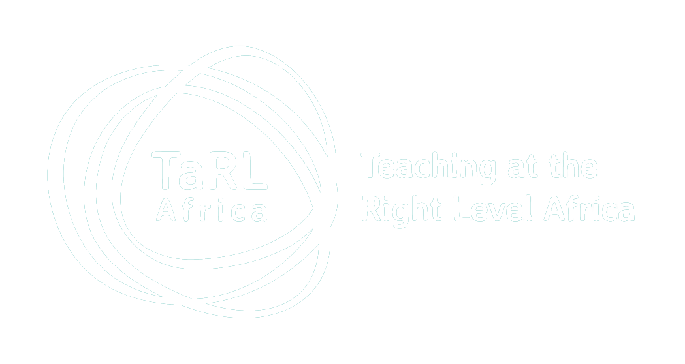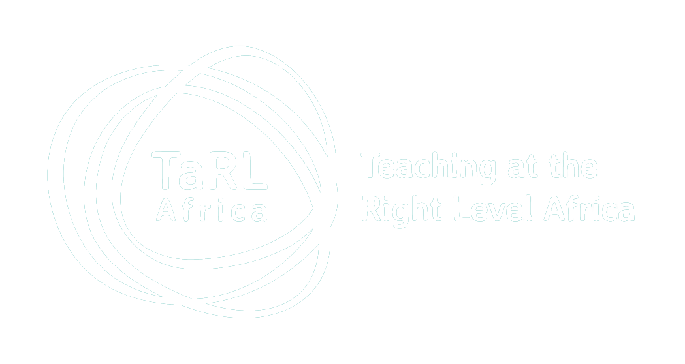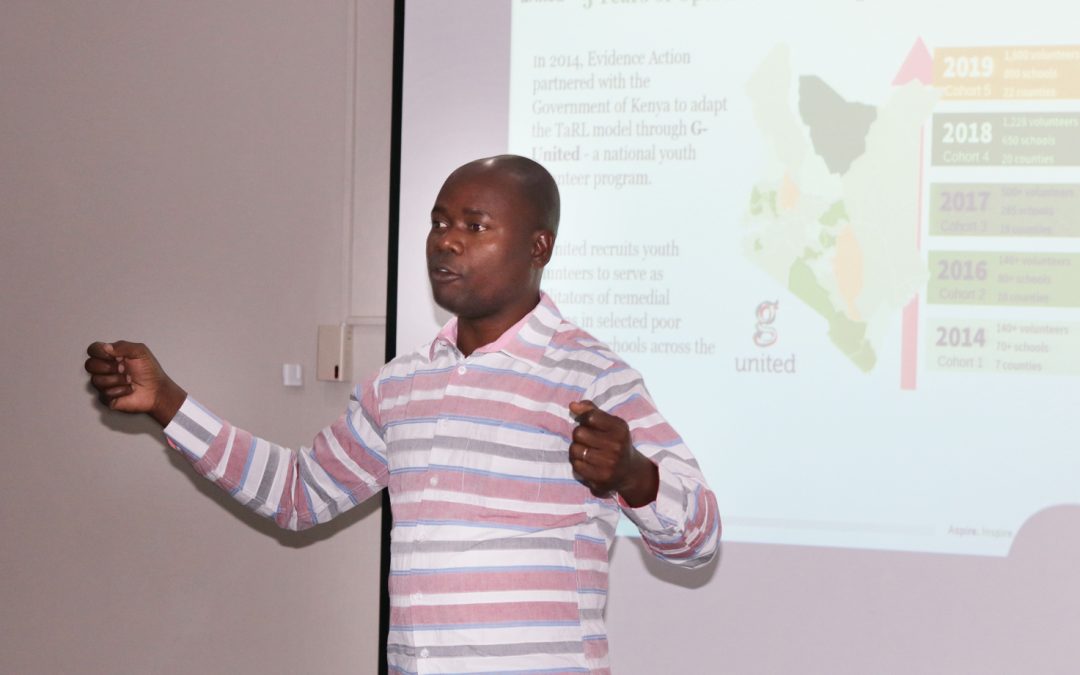
TaRL Workshop 2019 trainer, Fred Abungu. Photo: Young 1ove.
From 10-18 September 2019, TaRL Africa and Young 1ove co-hosted a TaRL Workshop. The workshop covered each aspect of the TaRL approach including TaRL models, assessment, reading and maths classroom methodology, mentoring, monitoring, and working with governments. The workshop also included time to practice assessment and activities in classrooms in Gaborone.
Fred Abungu, who is currently working at Evidence Action on the G-United programme, was a TaRL trainer for the event. He reflects on his experience training others in the TaRL approach.
I was invited to be a member of the training team, together with colleagues from TaRL Africa and Young 1ove, for a set of TaRL Workshops hosted in Gaborone, Botswana. The 2019 workshop attracted participants from countries across Africa, who have a wealth of experience in the education space and are interested in learning about TaRL. It was amazing to see so many countries come together to tap into a rich pool of evidence and experience in order to expand the reading and maths revolution in their different contexts.
A few of my reflections are captured below.
Learning by doing: TaRL trainings mirror TaRL classrooms
TaRL concepts and activities are always evolving and improving. Sessions in the workshop mirrored what happens in a TaRL classroom, including “whole class” and small group activities. Each session started with the whole class activity. In this activity all workshop participants demonstrated key concepts. This was followed by participants practicing in small groups which is important for individual experience and mastery of concepts. My favourite activities were the story reading activity and the “fine with nine” mathematics activity (this involves using stones to teach the basics of addition and subtraction) – so amazing to see how much one can learn with a set of nine stones.
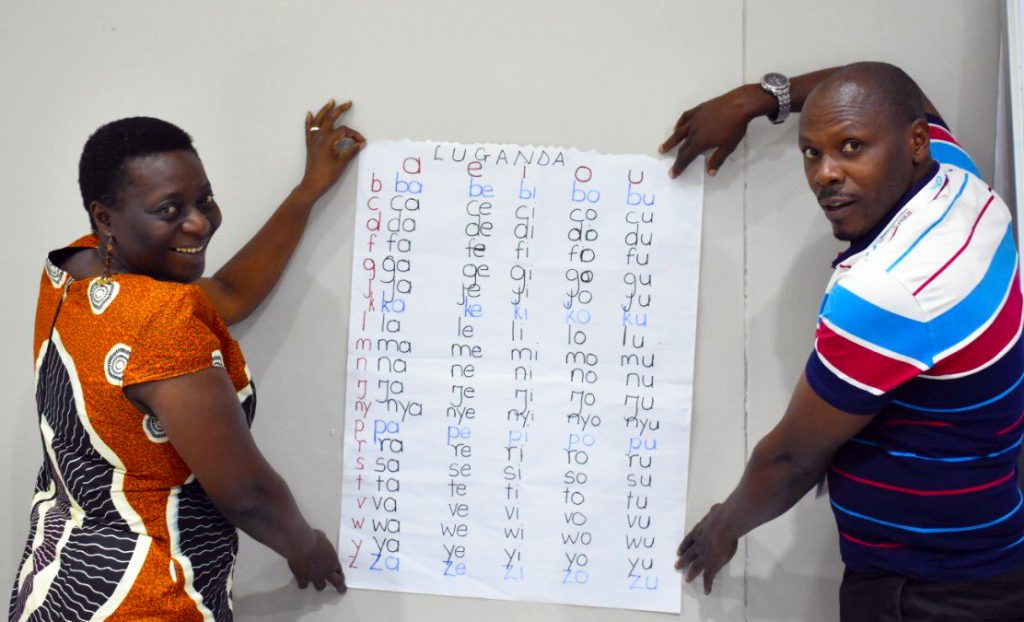
Syllable charts: Lydia Nakijoba from RTI and Ismail Katamanywa from Secure Plus share their Luganda syllable chart. “One cannot over emphasize the magic in syllable chart reading” – Fred Abungu. Photo: Samyukta Lakshman.
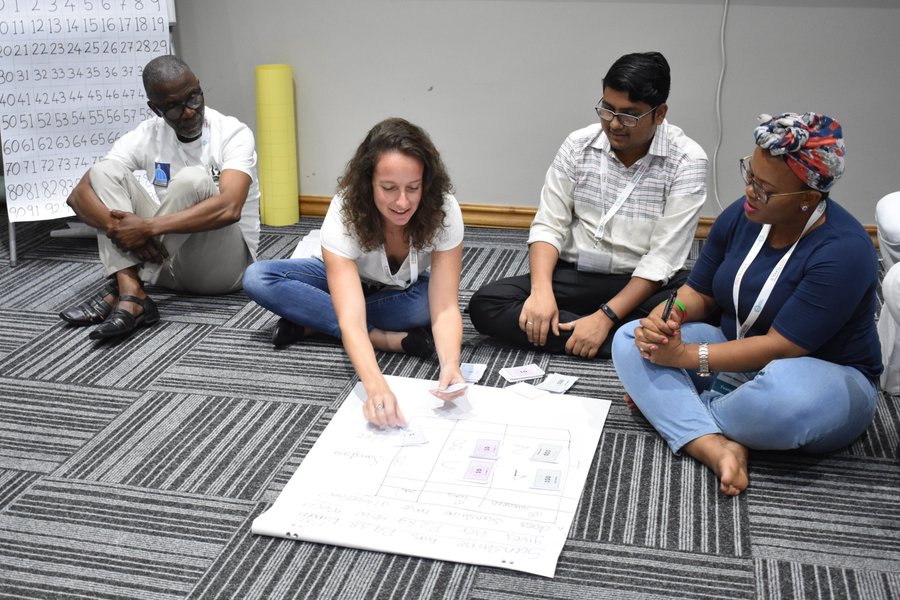
Learning by doing: the workshop mirrored TaRL classroom practices, with participants engaging in hands-on activities in “whole class” and small group formats. Patisizwe Mahlabela (CASME), Stephanie Dobrowolski (Rising Academy Network), Vikas Varma (TaRL Africa and Pratham) and Lesedi Sunshine Ntsambiwa (Young 1ove) practice play money activities in their group. Photo: Samyukta Lakshman.
TaRL classroom practice: the key to truly understanding the approach
Before taking on the trainer role, I already had significant experience implementing TaRL in a classroom setting. This practice not only helped me as a trainer to master the concepts but also gave me an understanding of the nuances of the methodology and classroom process.
Classroom practice is embedded in all TaRL trainings and the Botswana workshop was no different. Participants had the opportunity to practice a few TaRL activities in schools.
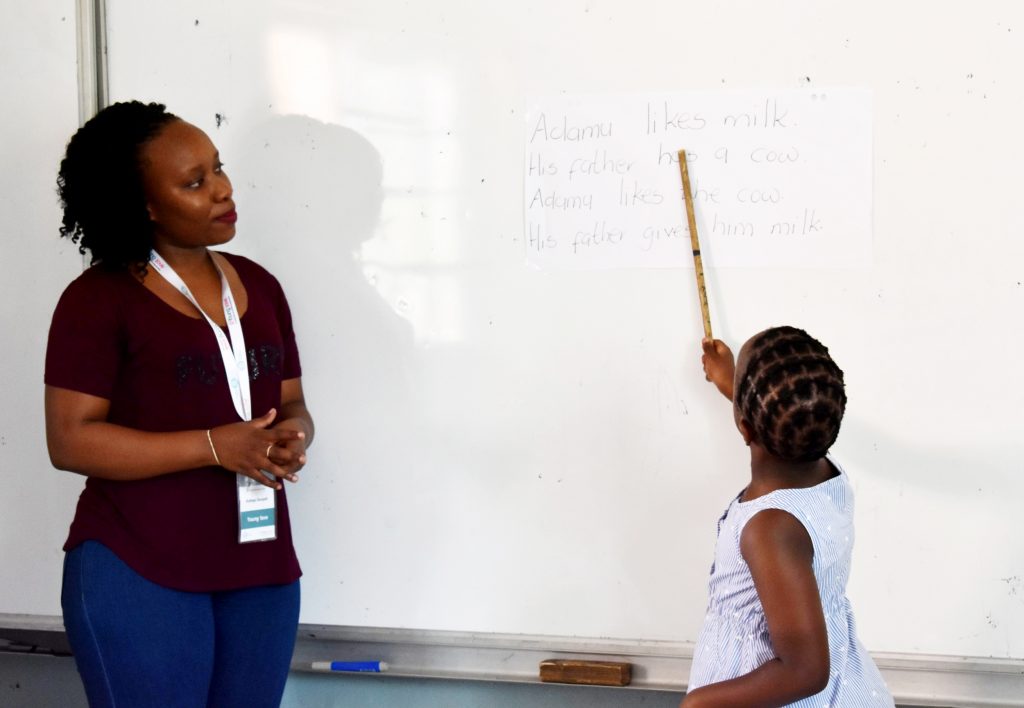
Practice is key: Katlego Sengadi conducts a TaRL reading activity during a practice class. Photo: Samyukta Lakshman.
After practice sessions, participants truly understood why TaRL Africa strongly recommends classroom practice of between 15 to 20 days for trainers and mentors. The classroom practice and the debriefing session that followed helped cement skills acquired during training and identified areas of improvement. This is the power of self-reflection.
